Criticism of the president has taken a turn recently, I’ve noticed. Instead of the usual warnings about creeping autocracy that one might find in, say, the last 500 editions of this newsletter, the tone of late among commentators has shifted to resignation. It’s no longer “creeping.” It’s here.
We’ve arrived at our destination.
“Those of you who don’t know what authoritarianism looks like…this is it,” popular historian Dan Carlin wrote yesterday on Twitter. “All the gaslighting about previous presidents ‘what about…!!!’ is bullsh-t. I’ve been talking about the slide towards NOW for 30+ years. Those earlier concerns were nothing. Now we are HERE.”
A message from The Dispatch
The American Experiment Is Still Happening
As the United States approaches its semiquincentennial, The Dispatch has launched The Next 250—a year-long project examining America’s founding principles and what makes this country, imperfect though it may be, so exceptional. Featuring exclusive essays from historians, political theorists, military experts, legal scholars, and cultural commentators, we’ll explore the biggest questions facing our nation and the unique qualities of this big, messy experiment we call home.
As a non-paying reader, you are receiving a truncated version of Boiling Frogs. You can read Nick’s full newsletter by becoming a member here.
Rachel Maddow anticipated his argument last week on MSNBC: “We have crossed a line. We are in a place we did not want to be, but we are there.” Andrew Sullivan came to the same conclusion a few days ago in an essay spanning many of the themes I’ve covered for the last six months. “I think this is how a republic dies,” he surmised. “If it is still, except on paper, alive.”
This is the point at which the president’s apologists interject to screech about “Trump Derangement Syndrome,” a talismanic incantation that aims to delegitimize alarm about Donald Trump’s behavior as per se hysterical. Is it, in fact, “deranged” to believe that our country has become an autocracy?
The president engages in open bribe-taking and extortion. He’s seized power over U.S. trade policy on phony “emergency” pretenses and is wielding it as a political weapon. He’s begun to demand government stakes in private enterprise, mimicking China’s model of “state capitalism.” He’s named to the federal bench unfit cronies whose main qualification is personal loyalty to him. He fired the government’s chief labor statistician for telling the truth and plans to replace her with an unqualified clown whom he can puppeteer. He falsely accused one of his predecessors of treason and may yet try to have him prosecuted. And he’s spearheading an unusual mid-decade effort in Texas to try to redistrict Democrats out of any chance of retaking the House next fall.
All of that happened in just the past month. Congress hasn’t lifted a finger to stop any of it.
The singular political fact of this moment is that America no longer has a legislature. It has one in name but it might as well not, as a Congress controlled by Republicans refuses to perform its constitutional duty to check the president. If you wouldn’t call a country without a functioning legislature an autocracy, what would you call it?
There is no authoritarian deviancy to which Donald Trump might warm that will seem deranged to those who bleat about “Trump Derangement Syndrome.” Conservatives who fancy themselves umpires, impartially calling balls and strikes on the president as he goes about his business, will never call enough strikes on this particular batter to declare him “out”—that is, to admit that he’s engaged in a fascist project and that the American right should be opposed until that project ends. Republicans who mock Maddow and Sullivan for forever claiming that authoritarianism is descending are covering their eyes to avoid having to reckon with the evidence that it’s true, even as it descends on their own heads.
All of this is necessary context for the “debate” that’s happening over his crackdown on Washington, D.C., the impetus for Carlin’s tweet yesterday.
A federal matter?
On Monday the president announced that crime in the capital has become a crisis and he’s stepping in to address it. Addressing it in this case not only means reassigning officers from federal agencies like the FBI and the Drug Enforcement Agency to assist city police, it means deploying 800 National Guard troops to help with logistics and transportation.
And it means something else: For the first time, the White House invoked a provision of the Home Rule Act of 1973 to commandeer control of Washington’s police force. According to the president, “special conditions of an emergency nature” exist in the city, justifying the extraordinary measure.
You’ll hear two defenses of this from the right. One is that D.C. isn’t a state, it’s a federal territory, and the federal government has authority to micromanage its own territories. The other is that crime really has gotten bad in Washington, far more so than it was 25 years ago.
Both claims are true and both are beside the point.
If you’re still giving Trump the benefit of the doubt in matters like this one despite what you’ve seen since January 20, you’re looking for excuses to do so. You’ve weighed the risk of further unprecedented executive power grabs and needless domestic military interventions against a very flimsy public safety rationale and concluded, “Sure, I’m willing to experiment with even more aggressive autocracy for the sake of a bare pretense of fighting crime.”
That’s what Carlin and Maddow mean when they say “it’s here.” A country that goes on looking for excuses to enable a strongman even after he has made his intentions plain is finished as a republic.
As to the first defense, that Trump has lawful authority to meddle in federal territories, it’s true but willfully blind to the fact that he won’t stop at D.C. In case sending thousands of National Guard troops and hundreds of active-duty Marines to Los Angeles earlier this year didn’t convince you of that, the president made his ambitions clear at Monday’s press conference. “This will go further,” he said, naming New York; Oakland, California; and Baltimore specifically as potential targets for his next intervention. “We’re starting very strongly with D.C.”
Indulge me as I quote myself. “I think he’s sending more troops simply to desensitize Americans to the transgression,” I wrote in June after the president increased the number of soldiers in LA. “He wants to be able to deploy the military internally during his presidency as a matter of course, but it’ll take work to weaken the old taboo against doing so.” The D.C. crackdown is another blow to that taboo. You can anticipate what Trump will say next to get rid of it entirely: “If I can intervene in a state because there are riots there, and if I can intervene on federal land because the crime rate is high, why can’t I intervene in a state because the crime rate is high?”
Lo and behold, news is circulating as I write this that the Pentagon is developing a “Domestic Civil Disturbance Quick Reaction Force” of National Guard troops that will be ready at all times to respond to domestic “unrest” anywhere in America. A standing military unit on call for the president that’s explicitly tasked with confronting We the People: Are Maddow and Sullivan in denial about what’s happening, or are those who chant about “Trump Derangement Syndrome”?
Trump’s interest in cracking down on Washington has nothing to do with its status as a federal territory and everything to do with its status as a heavily Democratic jurisdiction, just like the states where New York, Oakland, and Baltimore are located. He would never deploy the military to crack down on Memphis, Tennessee, where violent crime is more than twice as high as it is in D.C., absent an invitation from the state’s Republican governor. Imperiously intervening against the wishes of local authorities is reserved for blue states and territories because Trump wants Americans to believe that authoritarianism is the only alternative to urban Democratic anarchy.
And if you suspect there’s a racial component here, I don’t blame you.
Funny coincidence: LA, D.C., New York, Oakland, and Baltimore all happen to have black mayors and they’re all on the president’s radar, never mind that some of them—including Washington—have seen improvement on crime lately. Racial tribalism is a force multiplier for Trump; it will appeal to some to imagine a white leader forcibly imposing order on lawless black jurisdictions. As our friend Andrew Egger noted today, when the president stressed making D.C. safe again for tourists from Iowa and Indiana rather than for the locals, he wasn’t being subtle.
Which brings us to the right’s second defense of his actions.
A sinister farce.
It’s true that the crime rate in Washington is high. It’s also not an “emergency,” as Trump alleged when he invoked the Home Rule Act.
How could it be? Violent crime there is lower now than it was last year and during all four years of his first term. By definition, “emergency” implies a crisis that’s emerging, like a riot; the crisis in D.C. is easing, albeit modestly. One could argue that a chronically high crime rate (like in Memphis!) amounts to an emergency even if crime is falling, but here again we’re being asked to give Trump the benefit of the doubt as to his good faith that he plainly doesn’t deserve.
He’s justified one power grab after another over the past six months by declaring obviously bogus “emergencies” on matters ranging from tariffs to foreign “invasions.” Most of those supposed emergencies were entirely in the eye of the presidential beholder; the White House would have you believe that trade deficits are an emergency, for cripes’ sake. The essence of tyranny is arbitrary power, Sullivan noted in his column, quoting Ben Franklin, and Trump’s “emergencies” are almost always arbitrary.
Now he wants us to accept that there’s a dire crisis in D.C. despite the fact that he evidently didn’t perceive one between 2017 and 2020 when violent crime there was worse. Why would we indulge this blossoming autocrat in that belief when he’s acted so cynically with respect to other “emergencies”?
And if it is a bona fide emergency, why is his attempt to address it so obviously unserious?
Under the Home Rule Act, Trump’s authority to commandeer the D.C. police force will expire in just 30 days unless Senate Democrats join Republicans in agreeing to extend it, which is all but unthinkable. At the moment, FBI agents in Washington who’ve been assigned to join the crackdown are scheduled for no more than one week of overnight patrols with local police. Absurdly, the president interrupted his own announcement yesterday of a huge manpower surge in local law enforcement to note that the city’s problem isn’t a lack of manpower.
This isn’t a real crackdown, it’s security theater. Already there are embarrassing videos circulating of DEA agents in bulletproof vests walking the beat on the National Mall as joggers in T-shirts and shorts brush past. Pete Hegseth, who’s forever wheezing about warfighting and “lethality,” now presides over a force whose duties increasingly involve standing around next to cops as human props in what will end up as B-roll footage for the GOP’s eventual midterm ads. Crime in D.C. might plausibly get worse over the next month as the White House redeploys cops to tourist areas for “tough on crime” photo ops, leaving more dangerous areas unpatrolled.
It’s one thing to ask Americans to trade liberty for safety, but quite another to ask them to trade liberty for the illusion of safety. What, precisely, is being accomplished by Trump’s move besides further desensitizing the population to the idea that the president can and should send the military into the streets to achieve his political goals?
All you need to know about the supposed “emergency” in D.C. comes from the Washington Post. “Even before he took office, President Donald Trump had an informal playbook for how he would use the powers of the presidency to take control of the District of Columbia,” sources told the paper. The president was looking for an excuse to seize authority over the city, in other words, and finally got it earlier this month when former DOGE staffer Ed “Big Balls” Coristine was violently attacked during an attempted carjacking. That was the last straw, or at least something that could be presented to the public as one.
If Trump were serious about making Washington safer, he would have developed a “playbook” of data-driven crime-fighting tactics like the ones described by Dispatch contributor Charles Fain Lehman in his new piece for The Atlantic. (On the other hand, if fighting crime in D.C. and other cities is that important to him, maybe he should have run for mayor somewhere.) The fact that he had a playbook for “taking control” of the city instead, seemingly without any plan for what might follow, is Trumpism in a nutshell.
Find a pretext to claim some power that you didn’t have before and worry later about what to do with it: That’s the authoritarian logic that you’re enabling if you’re justifying this takeover. Don’t kid yourself.
‘Look what I can do.’
I’ve made the point before that, by presidential standards, Trump is unusually averse to deploying troops abroad and unusually eager to deploy them here at home. It’s tempting to call that a quirk, but it isn’t. It’s sound postliberal logic. If your true enemy is liberalism, why would you waste military power fighting other postliberals abroad? Focus on the threat here at home.
That’s why the Tucker Carlson faction of the right was so grumpy about the president’s attack on Iran, I’m sure. It suggested that his priorities are muddled. Nationalism seeks political and cultural dominance domestically for its tribe, yet here was Trump bombing some Middle Eastern country. If he’s serious about “America First,” he should be targeting Americans first.
The gratuitous military deployments we’ve seen in LA and now in D.C. are evidence that he intends to. John Kelly told the New York Times last year that the president “was repeatedly told dating back to his first year in office why he should not use the U.S. military against Americans” but alleged that Trump “nevertheless continued while in office to push the issue and claim that he did have the authority to take such actions.” Well, now he’s taking them. The unmistakable message as he looks for excuses to use soldiers internally and inevitably finds them is “Don’t test me. Look what I can do.”
And Americans are pretty comfortable with that, to all appearances.
That was the cause of Dan Carlin’s exasperation yesterday, I suspect, and of Maddow’s and Sullivan’s despair earlier. They’re alarmed less by the president’s actions than by the apathy with which we all now expect those actions will be received. The tone lately among Trump critics has shifted from “it’ll happen here if we don’t do something” to “it’s happening right now” because it’s hard to accept—even now—that the country we grew up in doesn’t care much about any of this. There remains a blind hope that Americans still don’t understand; if we raise our voices louder and dial up the urgency to 11, at last they’ll be roused.
They won’t be, though. They do understand. They don’t care. “The forces we are up against are far beyond Trump,” Sullivan acknowledged in his piece. “They’re called the cycles of history and a critical mass of the American people, who no longer want to govern themselves, who are sick of this republic and no longer want to keep it if it means sharing power with those they despise.” That’s a nice précis of the conclusions I’ve drawn in dozens of editions of this newsletter. Americans will not be roused. All indications are that they’re going to ride this rocket into the ground.
For once, Pete Hegseth is right: This is what the country voted for.
I’m glad to see fellow critics of the president refusing to look for their own excuses to let those voters off the hook morally for the choice they made. “Trump’s great authoritarian insight is that Americans will tolerate a lot more than you might think if they’re properly desensitized to the means and properly inflamed about the ends,” I wrote in June. As right-wingers openly fantasize about a “Bukele-style crackdown on D.C. crime,” ask yourself how much worse that desensitization might get.
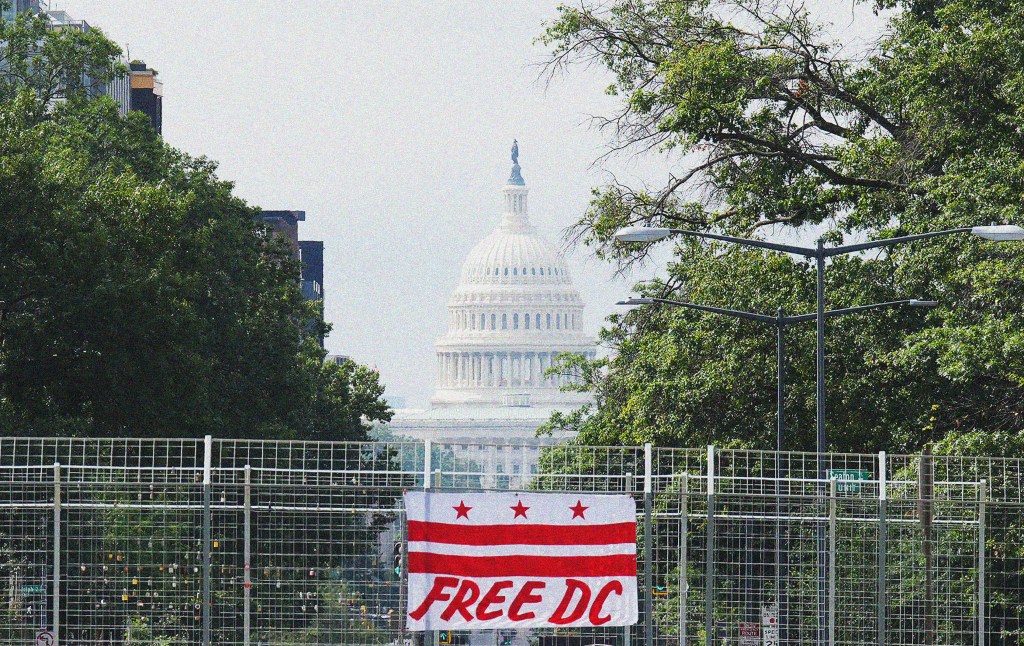



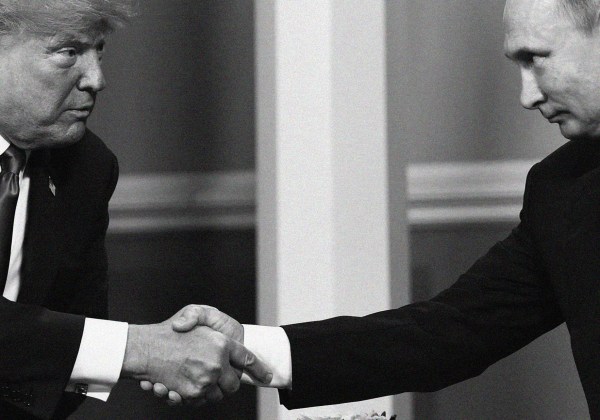
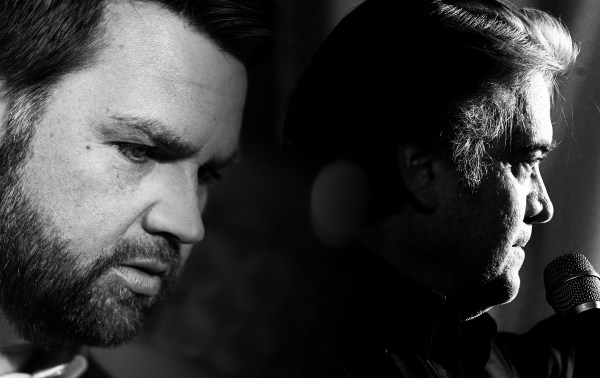
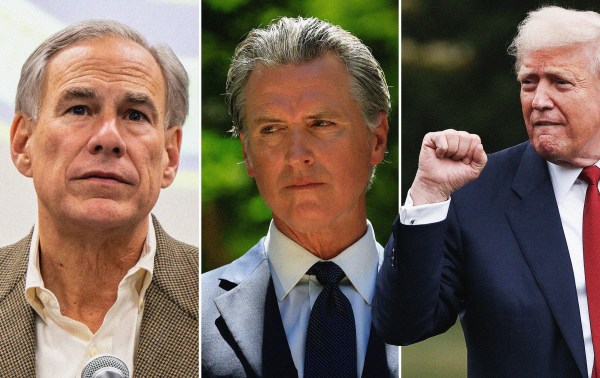
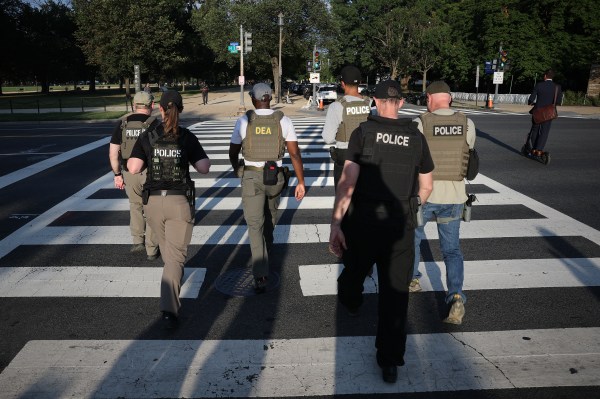




Please note that we at The Dispatch hold ourselves, our work, and our commenters to a higher standard than other places on the internet. We welcome comments that foster genuine debate or discussion—including comments critical of us or our work—but responses that include ad hominem attacks on fellow Dispatch members or are intended to stoke fear and anger may be moderated.
With your membership, you only have the ability to comment on The Morning Dispatch articles. Consider upgrading to join the conversation everywhere.